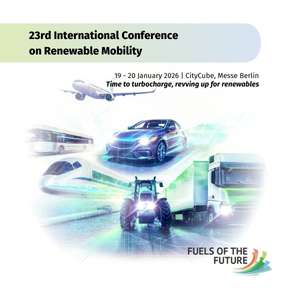Süd-Chemie breaks ground on Germany's biggest cellulosic ethanol plant
In Straubing, Germany, chemicals company Süd-Chemie has broken ground on what will be the nation's largest cellulosic ethanol plant.
By Q4 2011, the plant is expected to be producing 1,000 tonnes a year of cellulosic ethanol from locally sourced agricultural waste, including wheat straw.
Bavaria's Minister of Economic Affairs, Martin Zeil, was present at the ceremony, which took place on 26 July. The Bavarian state government and the German Federal Ministry of Education and Research (BMBF) funded the project.
The cost of the project is estimated at around €28 million, €16 million of which in investment and just under €12 million for accompanying research measures. The Bavarian state government and the German Federal Ministry of Education and Research (BMBF) have each put around €5 million into this and other research initiatives relating to the project.
'First generation biofuels are produced from edible parts of the plants, resulting in competition between food and fuel. Süd-Chemie's technology shows a way out of this dilemma by using the inedible parts of the plants,' says Zeil. 'That is why I have personally campaigned for the cellulose ethanol plant in Straubing and ensured that Bavaria will provide €5 million for accompanying research projects.'
'With the investment in building the demonstration plant, we are taking a major step towards commercialising our sunliquid process and thus launching a sustainable process for climate-friendly fuels,' says Günter von Au, chairman of the Süd-Chemie's managing board.
The new project will create around 20 jobs throughout the next three years.











